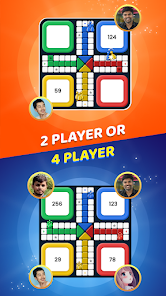Despite computerized games, AI opponents, and dazzling graphics, Ludo remains a popular board game. Ludo has appealed to generations across nations, age groups, and technologies with four tokens, a dice, and a square board.

What makes Ludo more than a game?
Every time it’s played, it builds emotions, memories, and human ties, not just gameplay. Ludo is tradition, therapy, and bonding time for millions worldwide, especially in India.
- A Game Inspired by Childhood
Most of us learn Ludo from family—an elder cousin, father, or grandparent describing how to “kill” a token or reach “home.” Loud, competitive Ludo on the floor made childhood evenings, summer holidays, and power outages exciting.
These memories represent a simpler time, not just nostalgia. A time when rolling a lucky six or sending a sibling’s token back to start brought delight, not a screen or pricey toy.
The game becomes a mental snapshot of joy, laughing, and sometimes lighter fights that taught us how to win gracefully or lose dramatically!
- Strategies trump luck most of the time
Ludo is commonly called a “game of chance” due to the dice, but experienced players realize it’s more complex. Rolling the dice is random, but using the number is strategic.
Move the token nearest to home or open a new one? Should you chase an opponent or play it safe? Prioritize escape or block entry?
Ludo’s micro-decisions are remarkably strategic. Players learn to spot trends, study opponents, and plan ahead. Like life, you can’t control what you’re handed, but you can control how you play it.
- Building Off-Board Bonds
Ludo connects people today, when most sit next to each other staring at their phones. Whether it’s a Sunday afternoon family game or an online Ludo app, the game brings people together to laugh and converse.
In addition to tokens, you move emotions. Mini wins are celebrated. When someone dies, you joke. Sharing inside jokes about lucky dice rolls. In those instances, Ludo is more potent than a social media “like” for personal connection.
- Emotional Safety
To feel fully in a low-stakes situation makes Ludo remarkable. Being prohibited from entering the board frustrates you. Finally rolling a six brings relief. Excited when near to winning. Happy to “kill” a token. Eliminating a loved one’s almost-home token causes guilt.
These mood swings are good for mental health. Ludo is emotional therapy, teaching us to stay cool, accept loses, cherish successes, and not take things personally.
- Digital relevance
Ludo had a global resurgence during the COVID-19 shutdown, especially through Ludo King and Ludo Club. Online Ludo delighted and linked homebound people. It helped many families maintain normalcy by allowing grandparents to play with grandkids across cities and college pals to reconnect online.
Best part? Ludo remained a game of emotion, strategy, and fun. Only the board got digital.
Ludo is one of the most downloaded and played smartphone games in India and worldwide. It proves classics develop, not disappear.
- Transmission from Generation to Generation
The legacy of Ludo goes beyond the game. Kids learn from their parents who played. Tricks and methods are passed down from grandparents. It goes beyond playing and becomes a picnic, family, and festival custom.
The generational sharing of information and fun makes Ludo timeless. Instead of energy, Wi-Fi, or high-end gadgets, it only needs people, tokens, and time.
A Simple Game Teaches Life
Ludo, a tiny board game, teaches life lessons. It teaches:
- Patience, as dice numbers don’t always come up.
- Resilience, since your token may die yet the game continues.
- You observe your opponents’ positions.
- Choosing which token to relocate.
- Sportsmanship—because you play regardless—is most important.
Conclusion:
Ludo transcends gaming. An emotion. Cultural glue. Timeless educator. A family therapist. A friend-maker. It’s one of the few things generations can enjoy equally. As the world changes rapidly, Ludo remains comfortingly the same—a square board, four tokens, and the satisfaction of rolling a six. Remember that you play to connect, feel, remember, and belong, not merely to win. Ludo is and always will be more than a game.